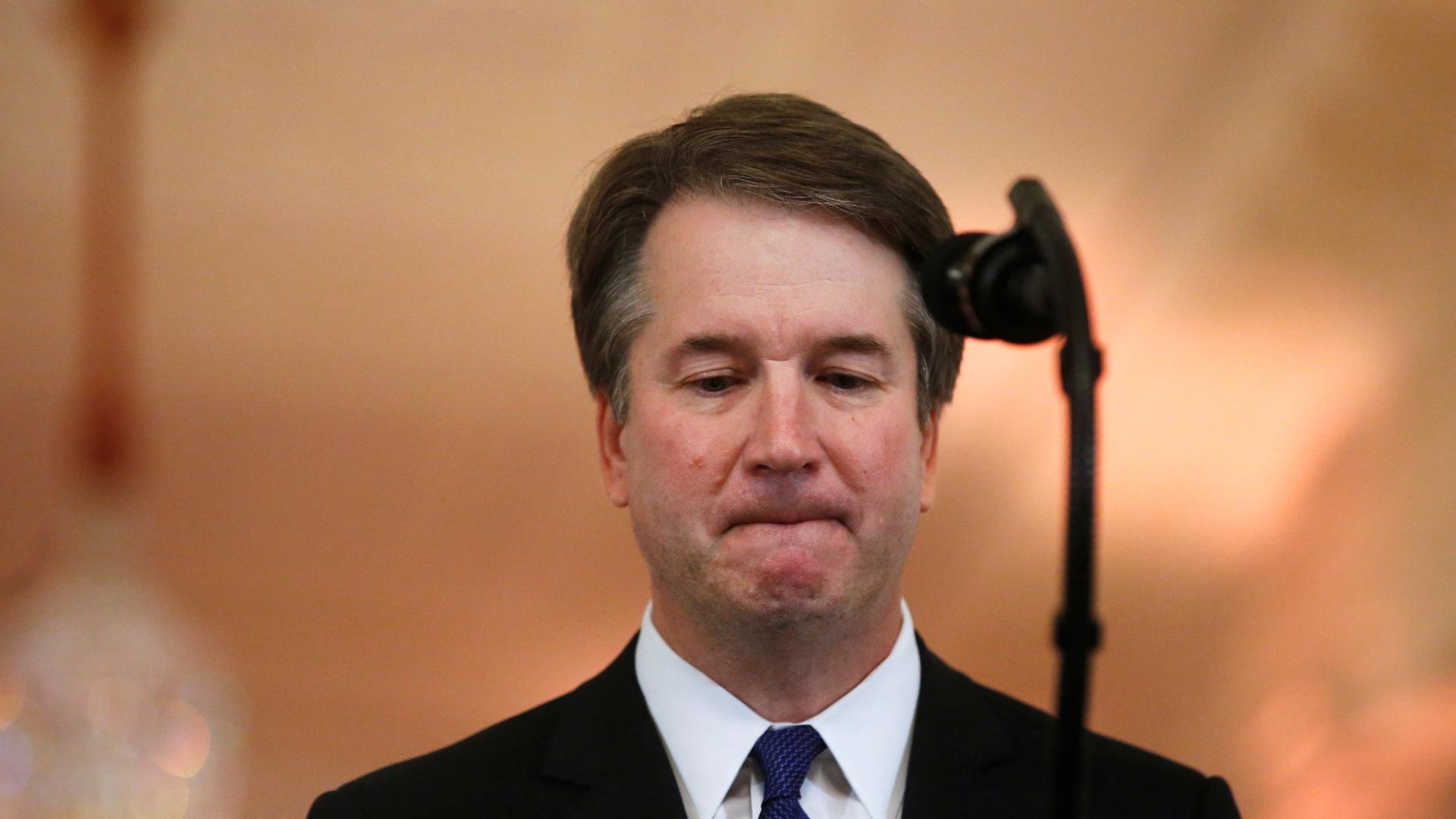What a Justice Kavanaugh could mean for climate change
US Supreme Court nominee judge Brett Kavanaugh in the East Room of the White House, July 9, 2018.
Supreme Court Justice Anthony Kennedy had a hand in some of the most important environmental law cases in recent history.
“He’s been on the court just over 30 years and he’s been in the majority in every single environmental case but one. You don’t win without Kennedy,” Harvard law professor Richard Lazarus told The Atlantic after Kennedy’s retirement.
The retired justice cast the decisive vote in a 2007 case, Massachussets vs. EPA, that gave the Environmental Protection Agency authority to regulate greenhouse gas emissions under the Clean Air Act.
President Donald Trump’s nominee to fill Kennedy’s seat, Brett Kavanaugh, would likely take the court in a different direction.
Kavanaugh spent 12 years as a judge on the US Court of Appeals in Washington, DC, and has a record of more conservative rulings on environmental cases, favoring industry over regulators especially in cases related to greenhouse gas emissions.
“The selection of Judge Kavanaugh shows that the Trump administration is serious about taming the administrative state,” Jonathan Adler, a law professor at Case Western Reserve University School of Law, told Reuters.
With a more conservative make-up, it’s possible the court may overturn Massachussets vs. EPA. Ann Carlson, the co-director of the Emmett Institute on Climate Change and the Environment at UCLA’s law school, thinks that’s unlikely.
“I think what’s more likely is that the court will follow what Judge Kavanaugh has done in his opposition on the DC Circuit Court of Appeals and simply limit the Environmental Protection Agency’s power to regulate greenhouse gas emissions,” Carlson told The World.
Massachusetts vs. EPA formed the legal framework for many Obama-era climate change laws — most notably the 2015 Clean Power Plan, which sought to reduce greenhouse gas emissions at power plants by about a third. The law never went into effect and has been stalled in lower courts for years. (The Trump administration has pulled its support for the law, and the EPA has reportedly drafted a narrower replacement for it.)
Kavanaugh sat on a panel that heard a challenge to the Clean Power Plan in 2016, and Carlson says he made clear in oral arguments that he believed the EPA overstepped its authority in establishing the rule.
“I think it’s very likely that if the Clean Power Plan were to come before the United States Supreme Court, Judge Kavanaugh would vote to strike it down,” Carlson says, adding that the four other conservative justices would most likely join him.
While President Trump stands staunchly against the Clean Power Plan, a Supreme Court decision narrowing the authority of the EPA to regulate greenhouse gasses could limit the ability of future administration’s to change course.
